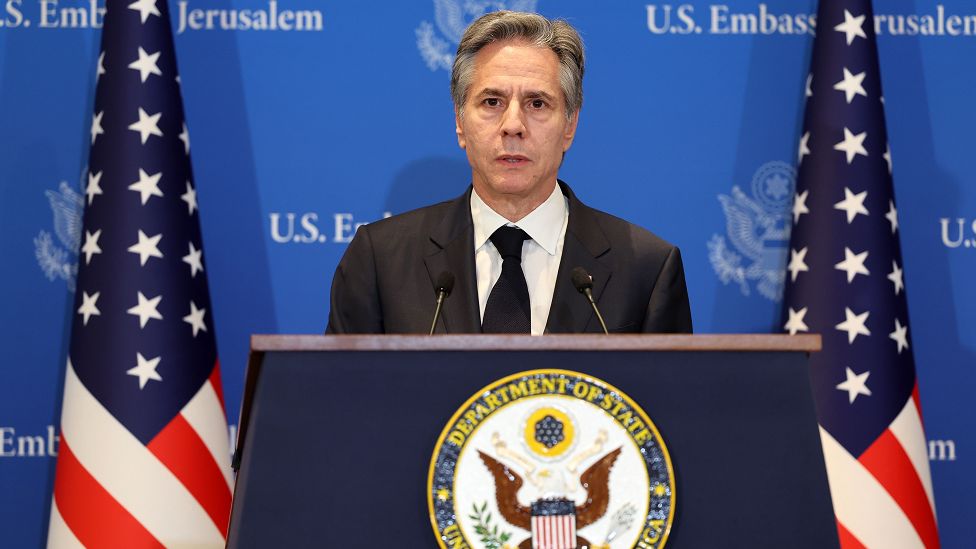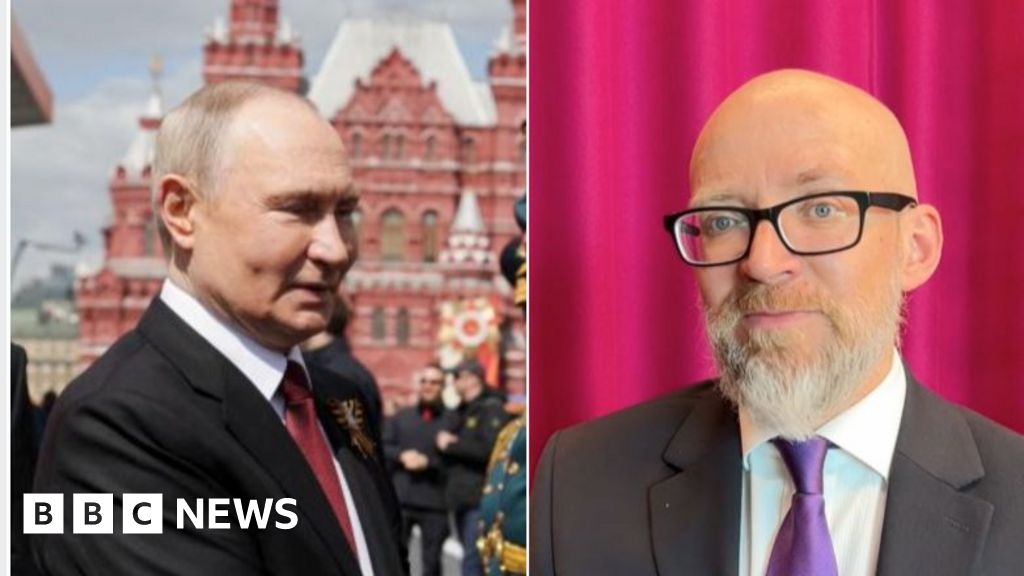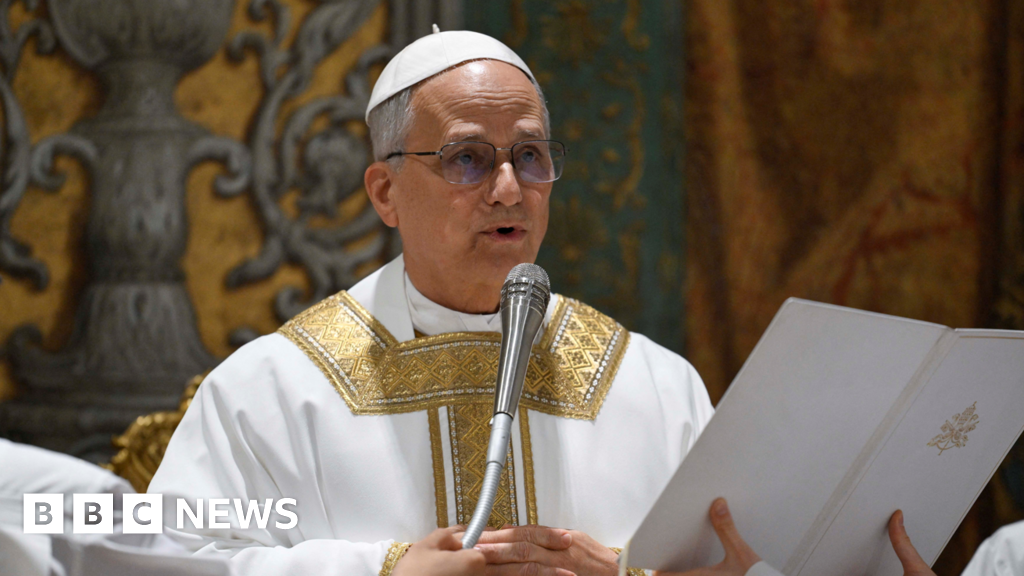ARTICLE AD BOX
 Image source, EPA
Image source, EPA
By James Gregory & Anthony Zurcher
BBC News, London and Tel Aviv
The cost of war on Gaza's civilians is "far too high", US Secretary of State Antony Blinken has said.
Mr Blinken said Israel needed to remove barriers so more essential aid could be allowed into Gaza.
But he said Israel faced a huge challenge in fighting an enemy in Hamas which had embedded itself within the civilian population.
Mr Blinken was speaking after meeting Israeli leaders on his fourth trip to the country since the conflict began.
America's top diplomat told a press conference in Tel Aviv that leaders in the region shared US concerns about the "dire humanitarian situation" on the ground.
But he said he had heard a new and powerful message from Israel's neighbours over the last three days.
They are willing not only to live with Israel but to integrate the region in a way that makes everyone secure, including Israel, Mr Blinken said.
In other words, talk of diplomatic normalisation with Israel - which had appeared to be derailed by the 7 October Hamas attack on Israel - is on the table.
That, he said, would require some hard decisions and hard choices - which include Israel agreeing to a "clear pathway to the realisation of Palestinian political rights and a Palestinian state" which he said was vital for long-term peace.
Mr Blinken would not be drawn on whether this was something Israel would consider. Israel's Prime Minister Benjamin Netanyahu has previously voiced his staunch opposition to such a state, citing security concerns.
Israel launched its offensive in Gaza in response to a cross-border assault by Hamas - designated a terrorist organisation by Israel and many western nations including the US. 1,300 people were killed in the attacks.
Since then, more than 23,200 people - mostly women and children - have been killed in Gaza, according to the Hamas-run health ministry.
When asked about whether there was any evidence that Israel was de-escalating its military campaign in Gaza, Mr Blinken answered that no one in the region - including the Israelis - wanted the conflict to escalate.
That may be reassuring for many worried about the conflict spreading, but he gave no indication that Israel told him it was winding down its military operations anytime soon.
In recent weeks, Hezbollah, a Lebanon-based organisation designated a terrorist group by the US, has increased rocket fire into northern Israel.
Yemeni Houthi rebels have also attacked commercial shipping in the Red Sea - one of the world's most important trading routes.
The Houthis, Hezbollah and Hamas are backed by Iran.
Mr Blinken's meetings in Israel on Tuesday were not entirely without tangible results. He announced that the US and Israel agreed on a plan for the UN to conduct an "assessment mission" that would be the first step toward allowing Palestinians to return to the areas of northern Gaza that have been devastated by the Israeli offensive.
Even here, however, Mr Blinken warned that their return would not happen "overnight". Too much has to be done to clear the area of unexploded ordinance and booby traps, as well as to ensure supporting infrastructure is in place.
Mr Blinken also told the press conference that South African claims that Israel was committing genocide, filed at the International Court of Justice, were "meritless".
But he said: "The daily toll on civilians in Gaza, particularly on children, is far too high."
He cited UN figures that 90% of the population continued to face severe food insecurity, adding: "For children, the effects of long periods without sufficient food can have lifelong consequences."
"More food, more water, more medicine, other essential goods need to get into Gaza. And then once they're in Gaza, they need to get more effectively to the people who need them."

 1 year ago
62
1 year ago
62








 English (US) ·
English (US) ·